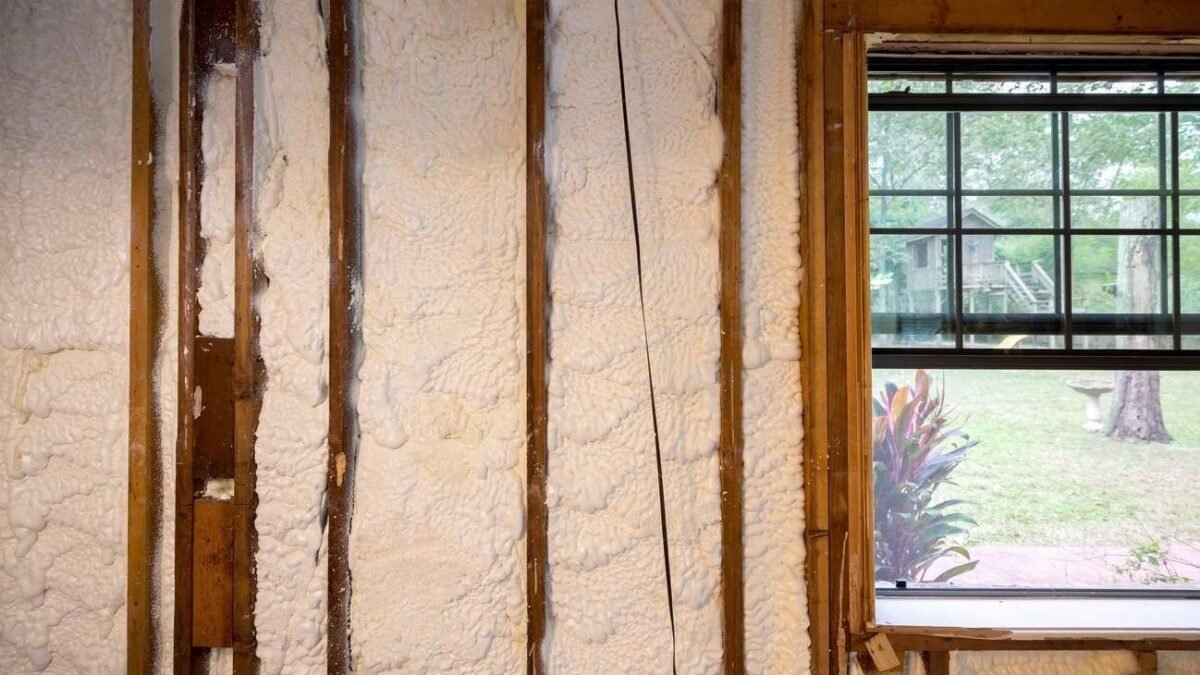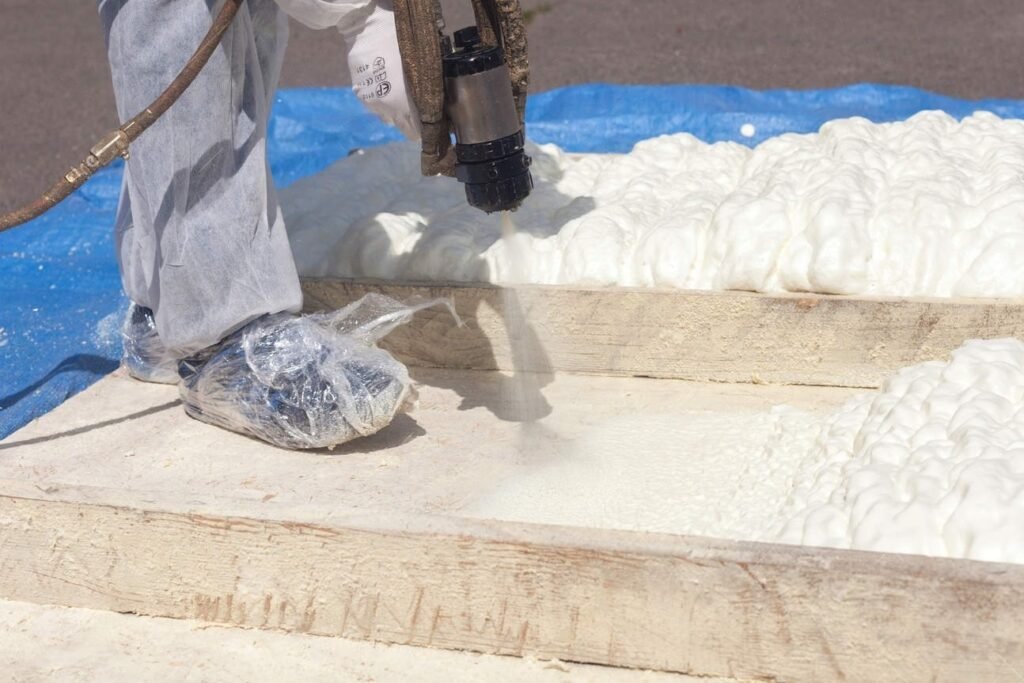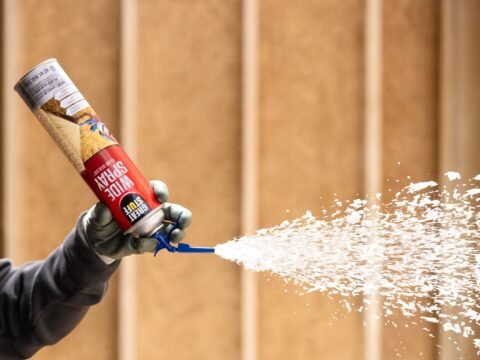- Call Us For A Quote
- (613) 319-8422
- info@613sprayfoam.ca
Spray Foam Insulation for Commercial Buildings: Benefits and Applications

The Benefits of Spray Foam Insulation: Saving Money and Reducing Carbon Footprint
April 28, 2023
Creating a Healthy Home Environment with Spray Foam Insulation
May 10, 2023As energy costs continue to rise, commercial building owners and managers are looking for ways to reduce energy consumption and save money. Spray foam insulation has become an increasingly popular option for commercial buildings due to its superior insulation properties and energy efficiency. In this article, we will explore the benefits and applications of spray foam insulation for commercial buildings.
Introduction
Spray foam insulation is a type of insulation that is applied as a liquid and expands to fill the space it’s applied to. It is a popular option for commercial buildings due to its ability to provide superior insulation and energy efficiency. Spray foam insulation is made up of two chemicals, isocyanate and polyol resin, that are mixed together and applied using a spray gun. Once applied, the liquid expands to fill the space and create an airtight seal.
Benefits of Spray Foam Insulation for Commercial Buildings
Spray foam insulation is a popular option for commercial buildings, providing numerous benefits.
Superior Insulation Properties
Spray foam insulation provides superior insulation properties compared to traditional insulation materials. It creates an airtight seal that prevents air from escaping or entering the building, which reduces energy consumption and saves money on heating and cooling costs. Traditional insulation materials like fiberglass and cellulose can leave gaps or cracks that allow air to escape or enter the building. Spray foam insulation expands to fill these gaps and creates an airtight seal that keeps the air inside the building where it belongs.
Energy Efficiency
Due to its superior insulation properties, spray foam insulation helps to reduce energy consumption and greenhouse gas emissions. It can help commercial buildings meet energy efficiency requirements and achieve LEED certification. Spray foam insulation can reduce energy consumption by up to 50%, which can significantly lower energy bills. By using less energy, commercial buildings can reduce their carbon footprint and contribute to a cleaner environment.
Improved Indoor Air Quality
Spray foam insulation creates an airtight seal that prevents air from escaping or entering the building. This means that pollutants, allergens, and other airborne contaminants are kept out of the building, which can improve indoor air quality. Traditional insulation materials like fiberglass and cellulose can trap dust and other particles that can contribute to poor indoor air quality. Spray foam insulation prevents this from happening, resulting in a healthier and more comfortable indoor environment.
Noise Reduction
Commercial buildings can be noisy places, with traffic, machinery, and other external noise sources contributing to a distracting and uncomfortable environment. Spray foam insulation can help to reduce noise pollution in commercial buildings. The airtight seal created by spray foam insulation can help to block out exterior noise, which can improve productivity and create a more comfortable work environment.
Durability and Longevity
Spray foam insulation is a durable and long-lasting option for commercial buildings. It does not settle or sag over time like traditional insulation materials, which means it retains its insulating properties for the life of the building. Spray foam insulation is also resistant to moisture, mold, and pests, which can contribute to the longevity of the building itself.
Applications of Spray Foam Insulation for Commercial Buildings
Roof Insulation: Spray foam insulation is a popular option for commercial building roofs. It can be applied to the underside of the roof deck to create an airtight seal that prevents air from escaping or entering the building. This helps to reduce energy consumption and save money on heating and cooling costs.
Wall Insulation: Spray foam insulation can also be used to insulate the walls of commercial buildings. It can be applied to the interior or exterior walls to create an airtight seal that prevents air from escaping or entering the building. This helps to reduce energy consumption and save money on heating and cooling costs.
Attic Insulation: Spray foam insulation is a popular option for commercial building attics. It can be applied to the underside of the roof deck or to the attic floor to create an airtight seal that prevents air from escaping or entering the building. This helps to reduce energy consumption and save money on heating and cooling costs.
Conclusion
In conclusion, spray foam insulation is a popular and effective option for commercial building insulation. It provides superior insulation properties, energy efficiency, improved indoor air quality, and noise reduction. Spray foam insulation can be applied to roofs, walls, and attics to create an airtight seal that helps to reduce energy consumption and save money on heating and cooling costs. As commercial building owners and managers look for ways to reduce energy consumption and save money, spray foam insulation is a solution worth considering.





